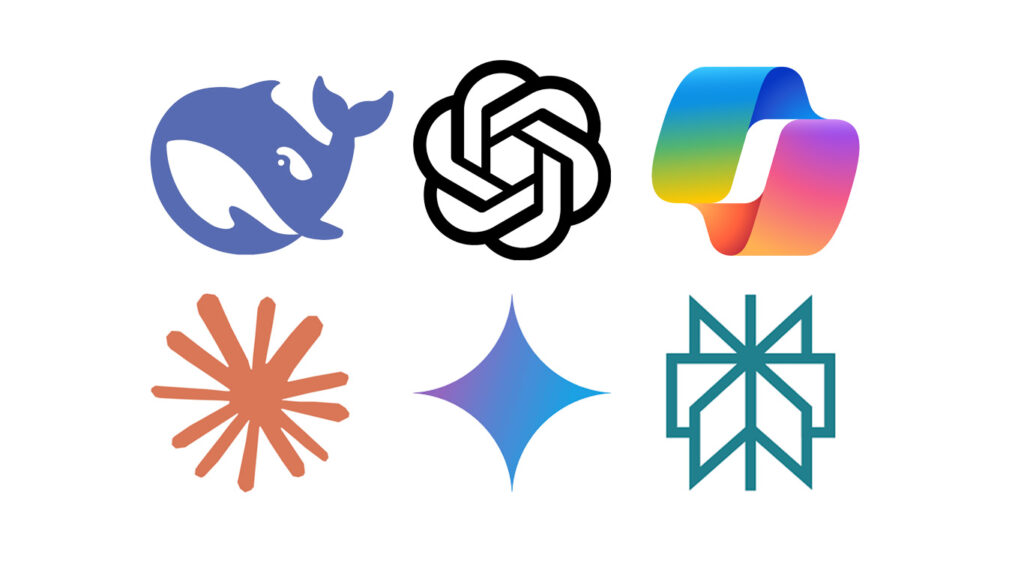Artificial Intelligence – AI – was once the preserve of science fiction. It still is. Much of what the news breathlessly calls AI consists of generative computer models trained on vast amounts of information and capable of remixing it in plausible ways.
These AI products remain artificial, then, but are not truly intelligent. In the realm of text, they’ve been mockingly described as ‘fancy autocomplete’ – a fair assessment. They take prompts and produce responses based on probability.
That doesn’t mean they aren’t useful. Apple is increasingly baking AI into its operating systems, albeit with mixed results. But if you want a standalone app to help you write, research, or summarize, where should you turn?
For this round-up, we tested six major AI chatbots across real-world tasks to find out which were genuinely helpful and which were just confidently wrong.
How we tested
This round-up focused on writing and research tasks, rather than the full scope of modern AI apps. Nonetheless, each assistant was subjected to a wide range of challenges.
These included researching current affairs and apps, crafting an email from a few bullet points, writing a personal bio, identifying niche tech from a photo, showing what an object (a tortoise) looks like, and planning a day trip to Oxford, England.
We assessed each app for accuracy, creativity, and usability. And we asked them all to write a limerick about a cat. Because life’s too short not to do such things.
ChatGPT (from free)
This is the brand most people associate with AI – and the one Apple leans on when its own tech falls short. The standalone ChatGPT app is stark but efficient. It nails human tone and was the sole app to correctly and fully accurately identify our niche tech (plus it offered handy follow-up buying advice). However, it stumbled when discussing current events and bizarrely decided to generate an AI image of a tortoise rather than just pulling photos from the web. Still, it’s arguably the best place to start for most people and most use cases.
Perplexity (from free)
This self-described ‘answer engine’ is a slick research companion, excelling at fast searches with visible sources and rewriting uploaded documents while integrating information from the web. Its bio generation was by far our favorite and the most accurate. The interface was among the best. Perplexity’s Oxford trip suggestions were overly ambitious, but it at least remembered lunch. We also appreciated the Discover tab, with its summarized news and spaces for themed threads. A worthy research-oriented alternative to ChatGPT.
Microsoft Copilot (from free)
One of the first apps to successfully integrate AI with web searches, Copilot remains strong in browsing with AI assistance. The interface feels friendly – its inline weather forecast offered great clarity. The app also lets you switch between quick or deep responses. However, its phrasing can be overly businesslike, and it was obsessed with universities for the Oxford trip plan – all very Microsoft! However, chat was overcautious and too often inaccurate, and its writing output was less impressive than the two apps covered so far.
Google Gemini (from free)
You might think Google would offer more personality than Microsoft, but its writing output was mostly dull and overwritten. Research results were mixed: Gemini misidentified tech, but provided the best results from all of the apps on test when chatting about current events. We were also impressed by its planning output. Gemini was the sole app in this round-up that considered our starting point and thereby offered relevant travel information. The rest of the itinerary was solid too.
Claude by Anthropic (from free)
This app talks itself up as a ‘personal pocket genius’ to help you break down complex ideas. Lofty goals. During our tests, it felt more academic than other apps and impressed when it came to more complex and structured problems. Admittedly, its Oxford advice was more about how to plan than an actual plan, but further experiments showed Claude was adept at breaking things down. Alas, other output was overwritten – its email read like a novella – and chat lacked natural flow. It delivered the funniest limerick, though, even if the second line’s rhythm was off.
DeepSeek (free)
This Chinese contender disrupted the AI space in early 2025 by claiming to match US-led tech for a fraction of the outlay – though not without raising privacy concerns. The app itself is an oddball: often wrong, occasionally brilliant, and reliably chaotic. It had no idea what our tech object was, produced a wildly wordy email with personalization placeholders, made up chunks of the bio, and offered no speech-based interaction. Points for creativity, though – it served up an ASCII tortoise to compensate for its lack of image support!
Risks and limitations when using AI apps
Whichever app or apps you use from this selection, remember these tools are fallible. They all confidently ‘hallucinate’ facts, rely on outdated data, and may misrepresent sources. Image handling and voice input results vary wildly. If accuracy, bias, and accountability matter to you, double-check everything.
Also, remember that most free tiers are limited, often encouraging you to upgrade for better features and access. And be mindful that the App Store is packed full of AI scams; so do prioritize original apps (such as those listed here), rather than third-party apps that simply leverage their tech. Many of those will try to trick you into paying huge (and unnecessary) recurring subscription fees.
